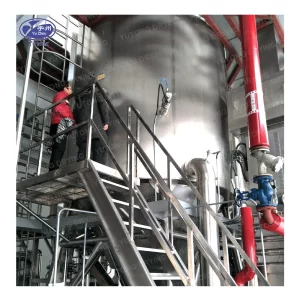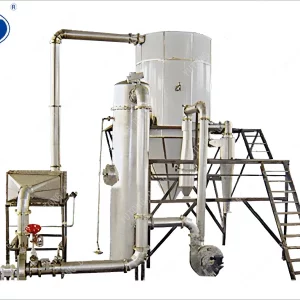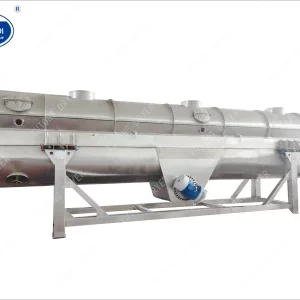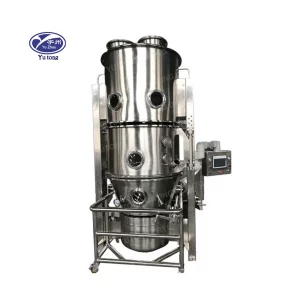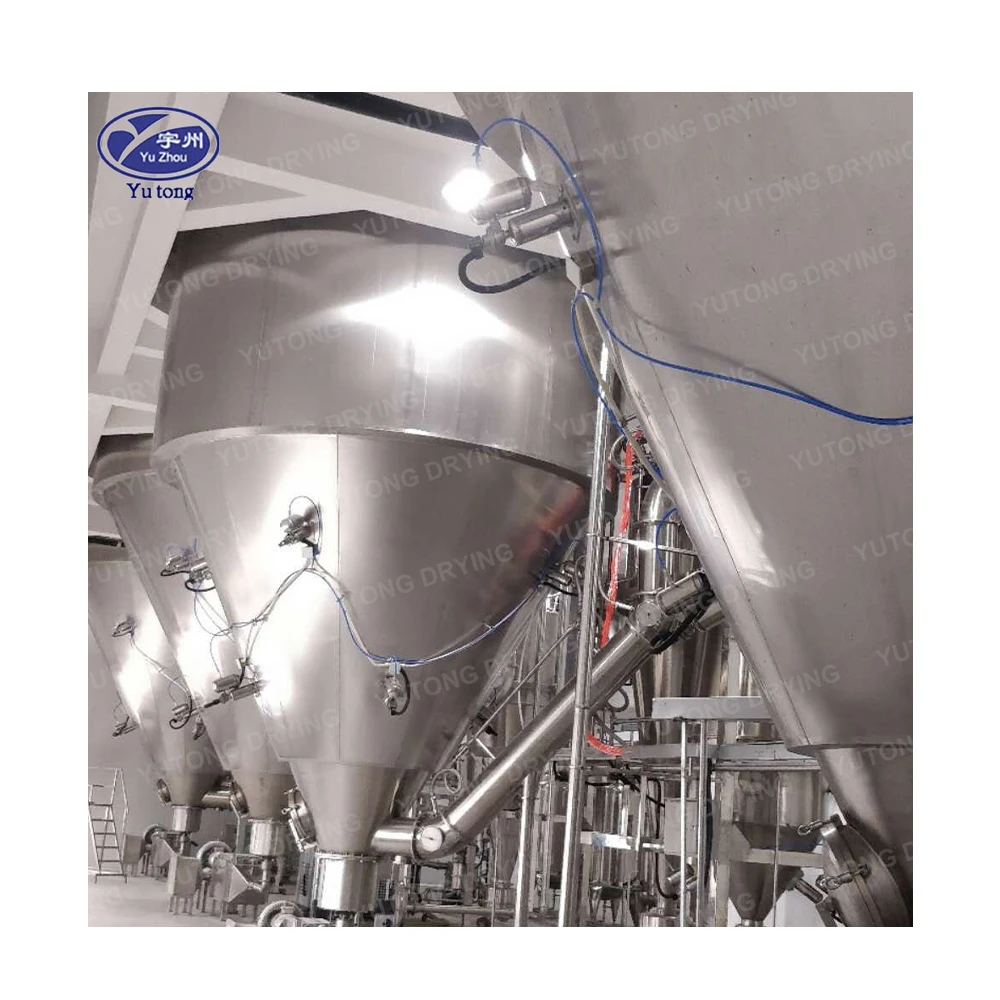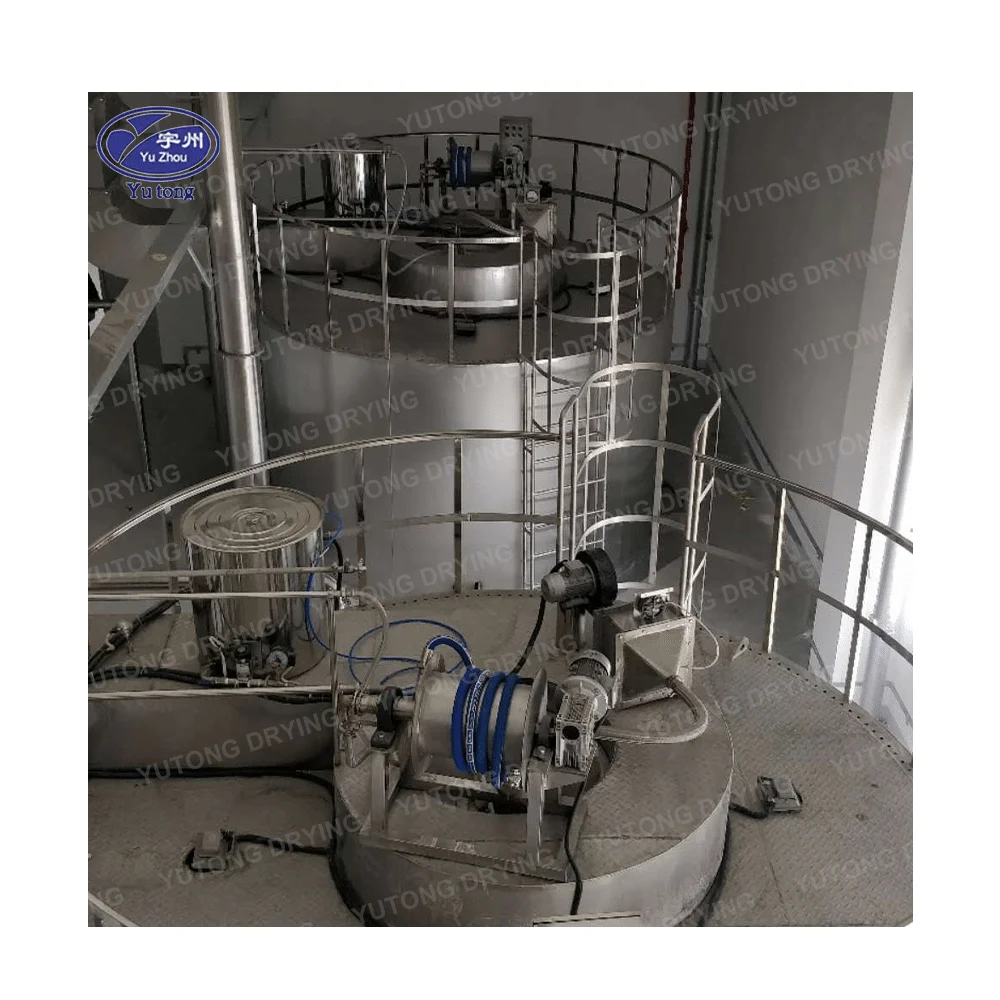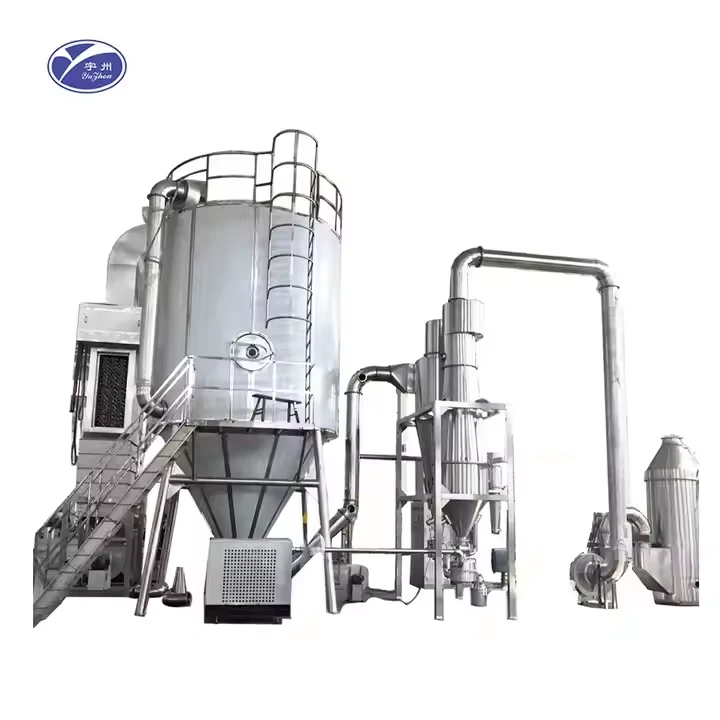In today’s fast-paced world, the demand for health supplements and nutraceuticals is skyrocketing. Consumers are becoming increasingly health-conscious, seeking products that enhance their well-being and provide essential nutrients. This has led to a surge in the production of nutraceuticals, ranging from vitamins and minerals to herbal extracts and probiotics. One of the key processes in the production of these products is drying, specifically using a technology known as spray drying. This method is crucial for transforming liquid formulations into stable, easily consumable powders. But what exactly is spray drying, and why is it so beneficial for nutraceutical production? This article will explore the benefits of using nutraceutical spray dryers, highlighting their efficiency, versatility, and impact on product quality.
What is Spray Drying?
Spray drying is a process that transforms a liquid mixture into a dry powder. This is achieved by spraying the liquid into a hot drying medium, causing the liquid to evaporate quickly and leaving behind the solid components as a fine powder. It’s a method widely used in various industries, including pharmaceuticals, food processing, and nutraceuticals. The ability to swiftly convert a liquid into a powder form is invaluable, especially in industries where shelf stability and ease of transportation are critical. The process involves several stages, including atomization, droplet-air contact, drying, and separation of the dried product from the drying air.
Spray Drying in Nutraceutical Manufacturing
In the context of nutraceutical manufacturing, spray dryers are used to dry health supplements and other nutraceutical products. The process begins with the formulation of a liquid mixture containing the desired nutrients. This mixture is then atomized into tiny droplets and introduced into a drying chamber. The hot air in the chamber evaporates the moisture from the droplets, leaving behind a fine, dry powder ready for packaging or further processing. The drying chamber’s temperature and airflow are carefully controlled to ensure the preservation of sensitive ingredients. Additionally, the choice of atomizer, whether rotary or nozzle, can impact the particle size and distribution of the final product, making the equipment selection an essential factor for manufacturers.
Key Benefits of Nutraceutical Spray Dryers
1. Preservation of Nutrient Integrity
Spray drying allows for precise control over the drying conditions, which helps maintain the integrity of sensitive nutrients and active ingredients. This is especially important in the nutraceutical industry, where the efficacy of health supplements is closely linked to their nutritional content. By preserving these components, spray drying ensures that the final product is both effective and high-quality. The gentle drying process minimizes the exposure of heat-sensitive ingredients to high temperatures, reducing the risk of degradation. This ensures that the bioavailability of nutrients remains intact, providing consumers with products that offer the intended health benefits.
2. High Efficiency and Uniformity
The spray drying process is highly efficient, allowing for the rapid conversion of liquid mixtures into dry powders. This efficiency translates to higher production rates and reduced processing times, making it an ideal choice for large-scale nutraceutical manufacturing. Additionally, the process produces uniform particle sizes, ensuring consistent product quality across batches. This consistency is crucial for maintaining brand reputation and meeting regulatory standards. By producing powders with uniform characteristics, manufacturers can better control dosage and ensure that each batch meets the desired specifications, reducing the likelihood of product recalls or consumer dissatisfaction.
3. Versatility in Formulation Processing
Spray drying is a versatile technology that can be adapted to various nutraceutical formulations. Whether it’s vitamins, minerals, herbal extracts, or probiotics, a nutraceutical spray dryer can effectively process a wide range of ingredients. This flexibility makes it a valuable tool for manufacturers looking to diversify their product offerings. The ability to customize the drying process for different ingredients allows for the development of innovative products tailored to specific consumer needs. Additionally, the technology can accommodate both heat-sensitive and stable compounds, broadening the scope of potential applications in the nutraceutical market.
4. Cost-Effectiveness
Compared to other drying methods, spray drying is a cost-effective solution for nutraceutical production. Its ability to handle large volumes of material quickly and efficiently reduces operational costs and energy consumption. Moreover, the high yield of the process minimizes waste, further contributing to cost savings. By optimizing resource utilization, manufacturers can offer competitive pricing while maintaining profitability. The reduction in processing time and labor requirements also enhances overall production efficiency, enabling companies to scale their operations without a significant increase in expenses.
Applications of Spray Drying in Nutraceuticals
Spray drying is employed in various applications within the nutraceutical industry. Some common uses include:
1. Health Supplements
Many health supplements, such as protein powders, herbal supplements, and vitamin complexes, are produced using spray drying. The process ensures these products retain their nutritional value while achieving a desirable powder form. This is particularly important for products intended for athletic performance or dietary supplementation, where ease of mixing and consumption is key. The resulting powders are not only easy to store and transport but also offer convenience for consumers, who can quickly dissolve them in water or other liquids.
2. Probiotics and Enzymes
Probiotics and enzymes are sensitive to heat and moisture, making spray drying an ideal method for their production. The gentle drying conditions help preserve the viability and activity of these beneficial microorganisms. This is crucial for ensuring that the probiotics provide the intended health benefits, such as supporting digestive health and boosting immune function. By maintaining the activity of enzymes, manufacturers can deliver products that aid in digestion and nutrient absorption, enhancing the overall effectiveness of the supplements.
3. Encapsulation of Bioactive Compounds
Spray drying can also be used to encapsulate bioactive compounds, protecting them from degradation and improving their stability. This is particularly useful for nutraceuticals containing unstable ingredients like omega-3 fatty acids or certain vitamins. Encapsulation through spray drying enhances the shelf life and bioavailability of these compounds, ensuring that they remain effective until consumption. This technique also allows for the masking of unpleasant tastes or odors, improving the palatability of the final product and broadening its appeal to consumers.
Selecting the Right Spray Drying Equipment
When selecting spray drying equipment for nutraceutical production, manufacturers must consider several factors to ensure optimal performance. These include the capacity of the spray dryer, the type of atomizer, and the drying chamber’s design. Additionally, it’s crucial to choose equipment that complies with industry standards for safety and hygiene. The choice of equipment should also consider the specific requirements of the ingredients being processed, as different compounds may require tailored drying conditions. Investing in high-quality, reliable equipment can enhance production efficiency and product quality, providing a competitive edge in the market.
Conclusion
Spray drying technology offers numerous benefits for nutraceutical production, from enhancing product quality to improving efficiency and reducing costs. Its versatility and ability to maintain the integrity of sensitive ingredients make it an invaluable tool for manufacturers looking to meet the growing demand for health supplements. By understanding the spray drying process and selecting the appropriate equipment, nutraceutical producers can leverage this technology to create high-quality, effective products that meet consumer needs. As the industry continues to evolve, spray drying will undoubtedly play a crucial role in shaping the future of nutraceutical manufacturing. The ongoing advancements in spray drying technology will likely lead to even more innovative applications and improved processes, further solidifying its importance in the nutraceutical industry.

